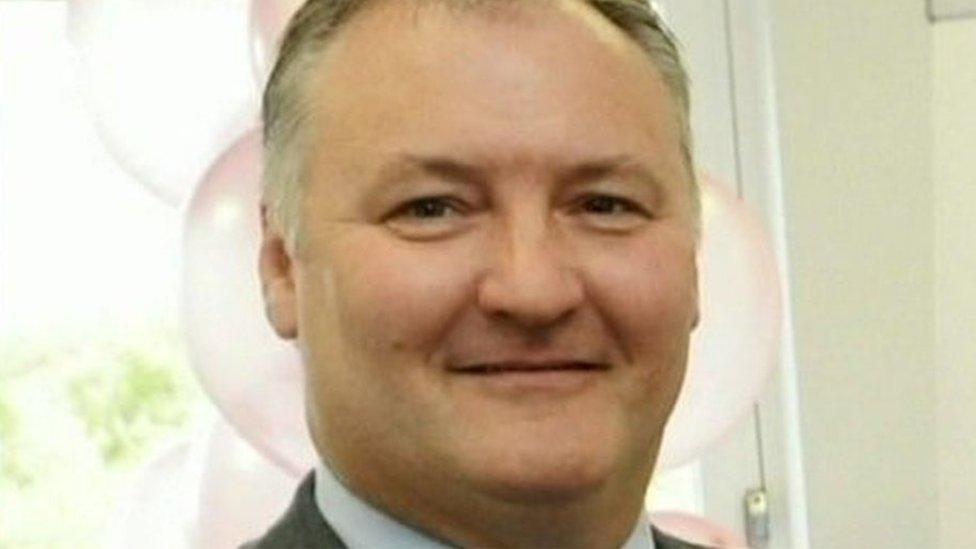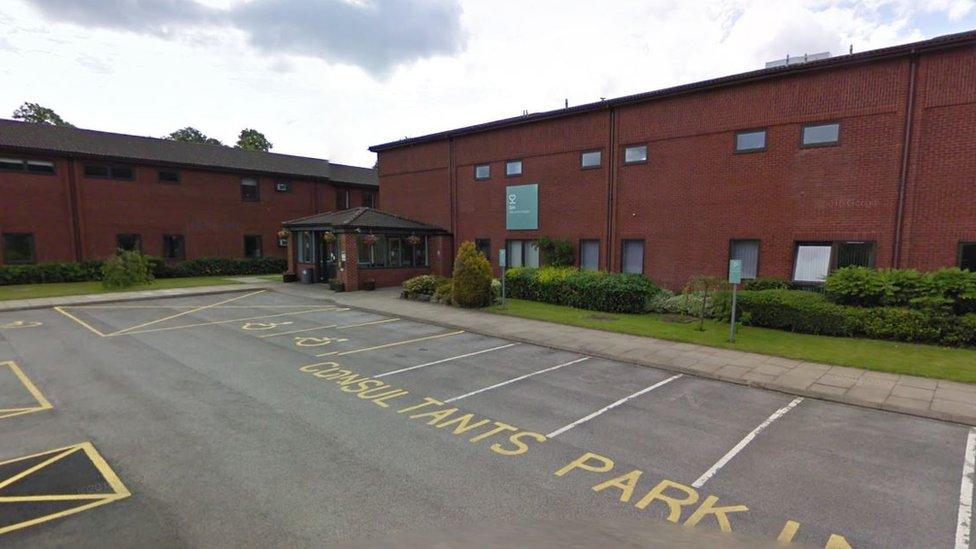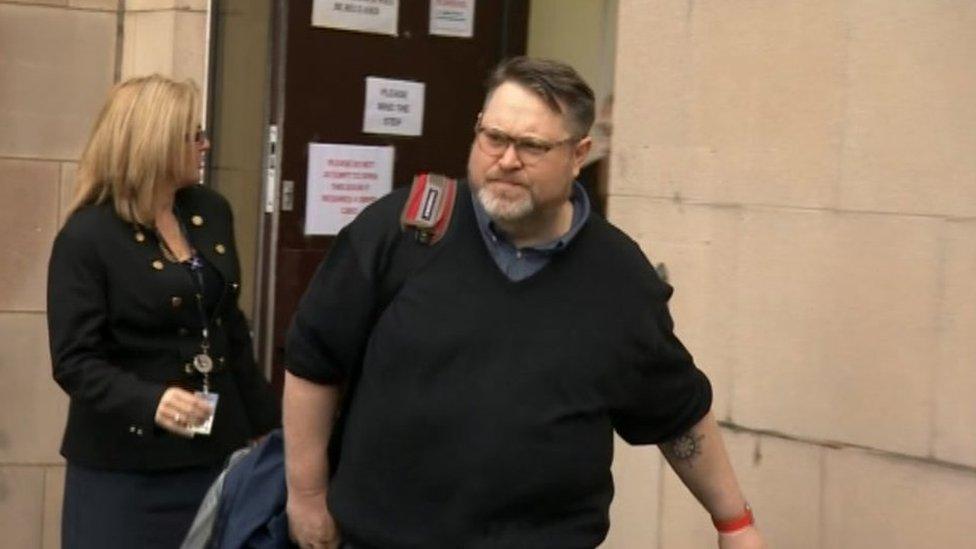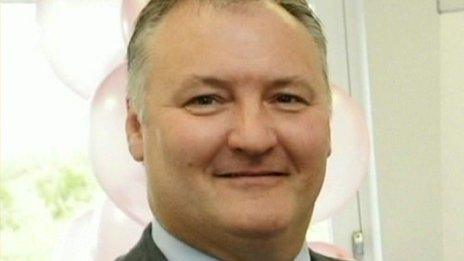Ian Paterson: Cancer ticking 'time bomb' description denied
- Published

Ian Paterson denies 20 counts of wounding with intent against nine women and one man at hospitals in the West Midlands
A surgeon has denied telling a patient she risked a ticking time bomb of breast cancer, a court has heard.
Ian Paterson said he had never used that "frightening analogy" in his life.
The trial previously heard Patricia Welch was led to believe she was a cancer "ticking bomb" and was wrongly encouraged to have a mastectomy.
Mr Paterson denies 20 counts of wounding with intent. The procedures relate to nine women and one man and were carried out between 1997 and 2011.
More from Birmingham and the Black Country
He was formerly employed by the Heart of England NHS Trust and Spire Healthcare.
Giving evidence at Nottingham Crown Court, Mr Paterson, 59, of Castle Mill Lane, Ashley, Altrincham, said biopsies taken from Mrs Welch had uncovered "four risk factors" of the disease.
"This is where Mrs Welch said the ticking time bomb analogy," he said.

Ian Paterson worked at Spire Hospitals in the West Midlands, including Little Aston
"I've never used that analogy in my life, it is a frightening analogy."
At the time of the operation Mrs Welch, then 48, was undergoing six-monthly check-ups at the Little Aston Hospital, Sutton Coldfield, after being told pre-cancerous cells had been found.
Mr Paterson said he had given Mrs Welch and her husband all the options, ranging from continuing surveillance of the left breast to a double mastectomy.
'Very anxious'
Another patient, retired landlady Carole Johnson, had previously told the trial Mr Paterson had told her some cells found in her breast were borderline cancer and that they needed to be "whipped out".
A mention by Mr Paterson of a breast cancer marker in a letter about Mrs Johnson, written after surgery, was an "error", he said, and also said it did not affect the treatment she was offered.
Mrs Johnson had had a benign lump removed in 2002 which was her choice, he said.
By 2006, she had had 10 more appointments with him for several lumps and he said she was "very anxious" about her breasts.
In a different letter, about another patient, John Ingram, Mr Paterson said he had mistakenly omitted the word "may" in a letter to Mr Ingram's GP.
He said he had intended to write the presence of unusual cells in Mr Ingram's breast "may represent atypia (potentially malignant cells)", but instead wrote "which represent atypia".
He denied trying to mislead anyone and said Mr Ingram's mastectomy was in his best interests.
The trial continues.
- Published28 March 2017

- Published27 March 2017

- Published16 March 2017

- Published9 March 2017

- Published6 March 2017

- Published2 March 2017

- Published1 March 2017

- Published28 February 2017

- Published18 January 2016
